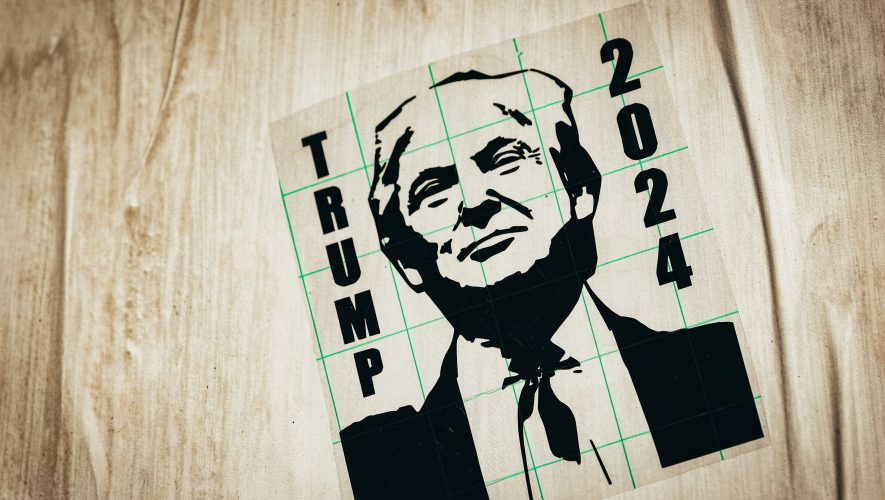According to Jonathan Aitken in his biography Nixon: A Life, Richard Nixon would reportedly sulk alone in the Oval Office for multiple hours a day during the final months of the Watergate Scandal. Humiliated and desperate for companionship, Nixon forced his press secretary Ron Ziegler to drink with him for six to eight hour stretches; Aitken would later write Nixon was “crumbling as a human being.” The break-in of the Democratic National Committee headquarters and his administration’s attempts at a cover-up exemplified every unpresidential quality: dishonesty, cheating, and corruption.
Ashamed, Nixon would become the first and only president to resign, demonstrating a level of humility and self-reflection expected of the nation’s highest office. Throughout American history, every scandal-ridden or unsuccessful president would swiftly be removed from office, either through losing reelection or refusing to run for a second term out of humiliation. This precedent has applied to presidents such as Jimmy Carter, Gerald Ford, Herbert Hoover and Andrew Johnson. Carter was unable to end the Iranian Hostage Crisis and curb stagflation; his predecessor, Ford, presided over the worst economy since the Great Depression and unpopularly pardoned Nixon. Hoover signed the Smoot–Hawley Tariff Act, exacerbating the Great Depression, and Johnson impeded Reconstruction, frustrating both Republicans and War Democrats. Each of these presidents only served one term or one partial term.
With the 2024 re-election of former president Donald Trump, that precedent has been destroyed. In its place, a new standard has been established: scandal and misconduct will no longer hinder one’s ability to enter the nation’s highest office.
The renewal of a political career like Trump’s has never before occurred in American history. In 1974, the “smoking gun” tape demonstrated Nixon knew he was purposefully obstructing justice, resulting in the destruction of his political career and his shameful bowing out. In 2020, the Trump–Raffensperger phone call showed that Trump was aware he was obstructing the 2020 election through asking the Georgia Secretary of State to “find 11,780 votes.” In spite of this, his political career is being reinvigorated, and he will retake the White House in January.
Trump has incurred a staggering number of Watergate-level scandals that theoretically should have tarnished his reputation and led to his loss in 2024. He had sex with another woman while his wife was pregnant, much how extramarital affairs would forever taint the reputations of Warren Harding and Bill Clinton. Trump has been impeached twice, but has not faced the same political backlash as Andrew Johnson, who the Democrats refused to renominate in the election of 1868 due to his impeachment a few months prior. Even the beloved Harry Truman willingly refused to run in the election of 1952 due to findings of corruption in his administration. Perhaps it is Vanity Fair’s November 6, 2024 cover that summarizes the norm-breaking election most eloquently, reading: “thirty-four felony counts, one conviction, two cases pending, two impeachments, six bankruptcies, four more years.”
Presidential candidates that provoked scandal were once quickly eliminated from a chance at the presidency. For example, John Edwards—a North Carolina senator seeking the 2008 Democratic presidential nomination—had his political career destroyed after it was revealed he cheated on his wife, fathered a child out of wedlock, and used campaign donations to cover it up. Trump himself has falsified business records and his own extramarital affairs.
None of this is to say Trump was completely unsuccessful. His poor character does not discount some of the successes of his administration. Trump became the first American president to step foot in North Korea, and he oversaw the assassination of ISIS founder Abu Bakr al-Baghdadi. Before the COVID-19 pandemic, he achieved small but positive economic goals, such as overseeing a 1.2 percent reduction in unemployment between 2016 and 2019. Regardless, his first election was norm-breaking—his second one even more so.
In 2016, Trump became the first president without any prior political or military experience, leading to Republicans cautiously supporting their dark horse president. In 2024, he became the first president to be a convicted felon. Still, his reputation seems to remain untarnished to his voters. In fact, his image seems to have been further mythologized. In November’s election, Trump swept each of the seven swing states, flipping the six which voted for Joe Biden in 2020. Trump became only the second Republican nominee to win the popular vote since the end of the Cold War.
Today, Republicans rally behind him and assume his cult of personality, and have prioritized policy over principle by ostensibly taking pride in a convict candidate. Under the guidance of a leader as malign as Trump, the United States’s status as “the city on a hill” once again slips. Under the first Trump administration, international approval of the United States plummeted to a level comparable to that of Chinese dictator Xi Jinping.
Trump has degraded the criterion for the presidency, opening the door for political aberrants who would have previously been shunned, such as Trump loyalists Robert F. Kennedy, who rejects the scientific consensus on vaccines and claimed Jews and Chinese people were immune to COVID; Pete Hegseth, who suffers from excessive drinking and faces numerous sexual assault allegations; or Vivek Ramaswamy, who claimed January 6th was an “inside job.” Trump’s second election sends a message to his country and the rest of the world: scandal and misconduct will no longer hinder someone from being president.



